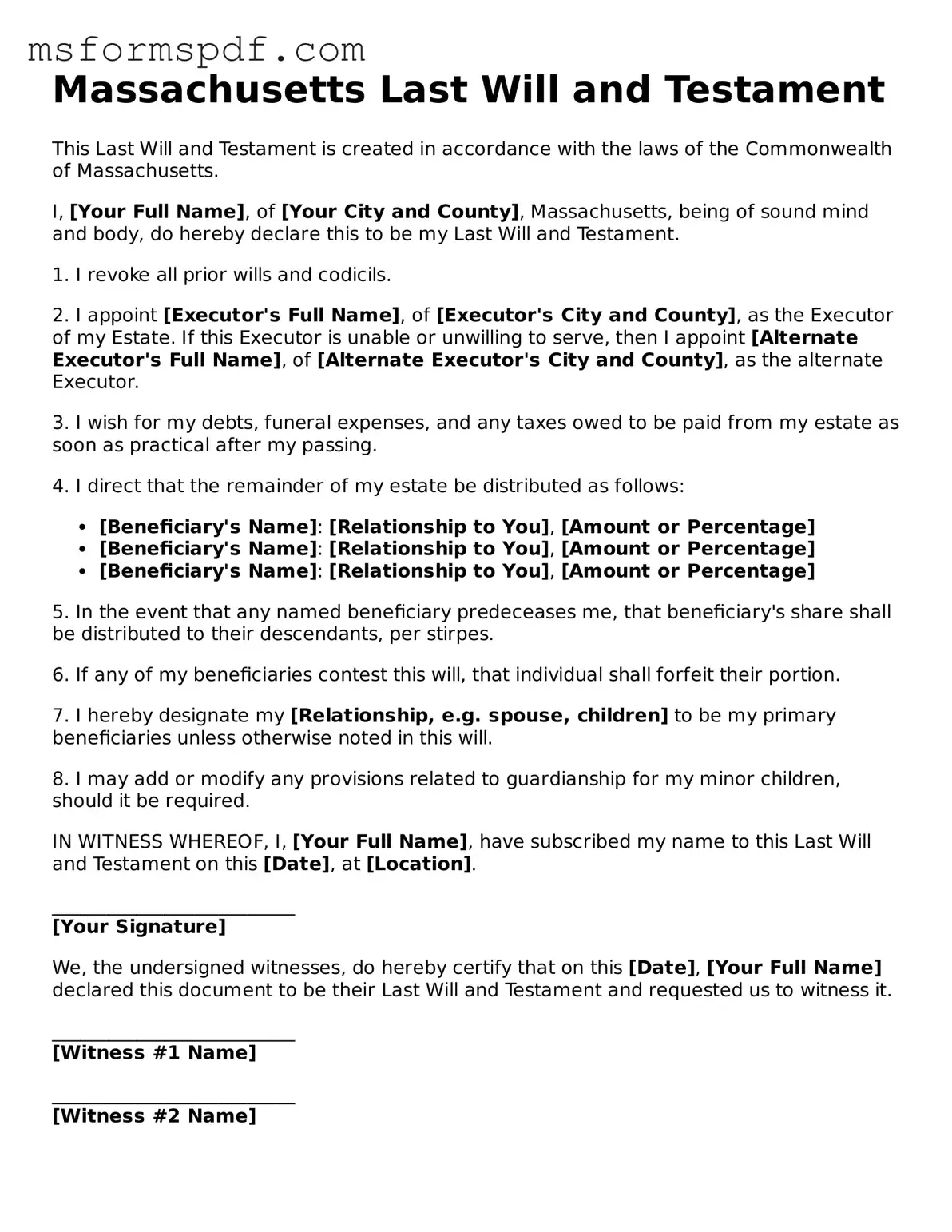Blank Massachusetts Last Will and Testament Document
A Last Will and Testament is a legal document that outlines an individual's wishes regarding the distribution of their assets after their death. In Massachusetts, this form is essential for ensuring that your property and belongings are passed on according to your wishes. Understanding how to properly create and execute this document can provide peace of mind for you and your loved ones.
Launch Editor Now

Blank Massachusetts Last Will and Testament Document
Launch Editor Now

Launch Editor Now
or
➤ Last Will and Testament PDF Form
Just a moment — finish the form
Fill out Last Will and Testament digitally — no scanning, no printing.